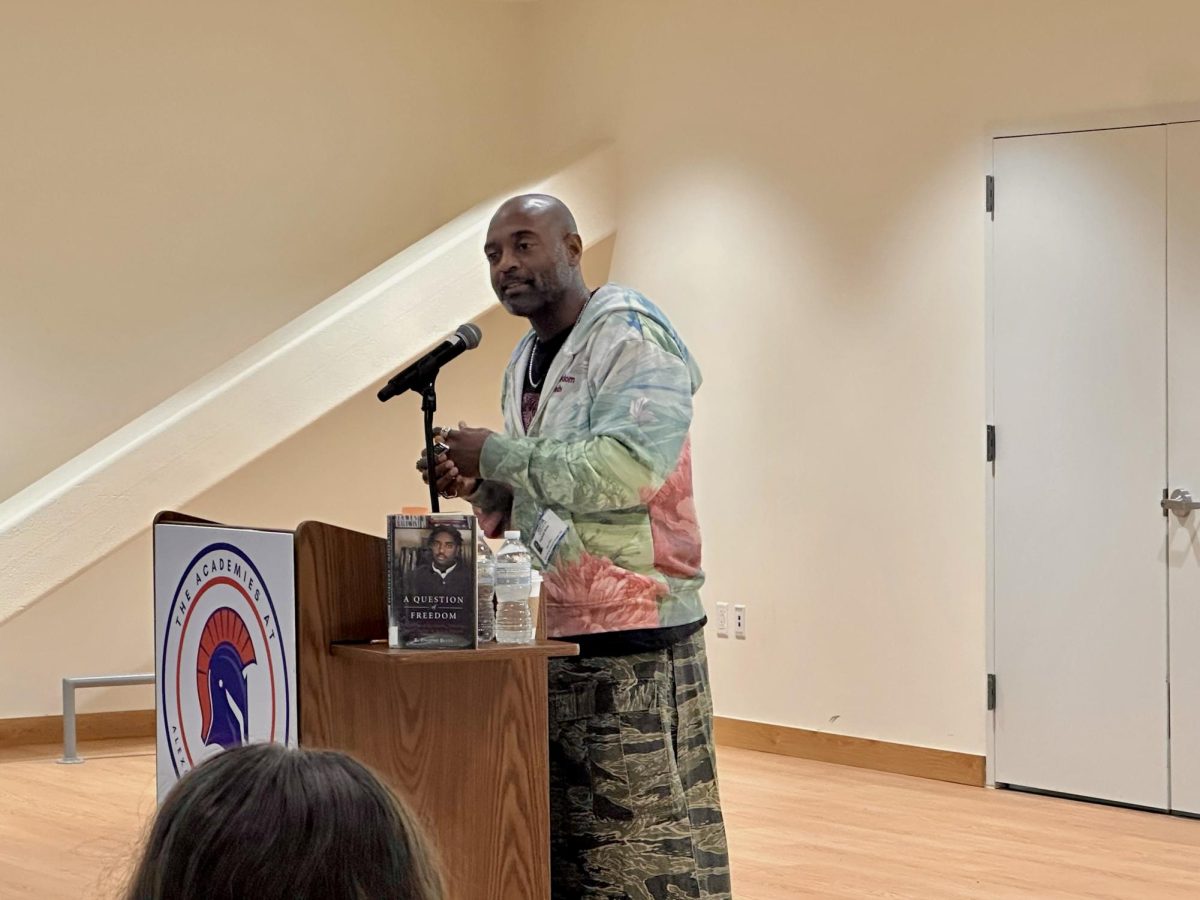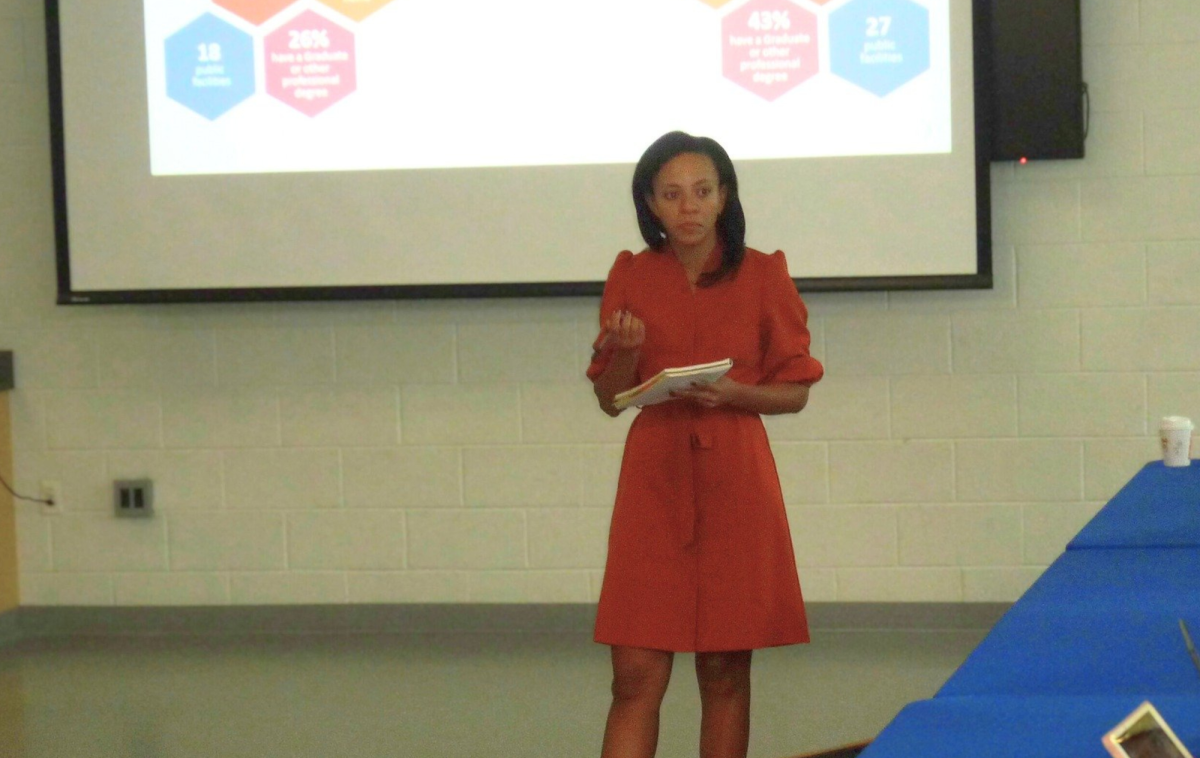[Updated Dec. 20 at 7 p.m.] At its Dec. 19 meeting, Alexandria’s school board approved a districtwide ban on student cell phones from bell to bell. District administrators developed the regulation mandating the ban after Gov. Glenn Youngkin (R) released an executive order in July to create “cell phone-free schools” in Virginia by Jan. 1. The school board voted 8-1 in favor of the ban, with Abdel Elnoubi (District C) — who was recently elected to City Council — as the sole dissenter. The ban will be implemented when students return from winter break.
Youngkin’s executive order provides guidance prohibiting students from using their phone for the entire day, from the first bell in the morning to the last bell of dismissal. Initially, it was unclear how Alexandria’s school district would respond, but the approved regulation fully complies with the executive order. (It does, though, contain exceptions that permit the usage of Minga digital hall passes for the remainder of the 2024-25 school year.)
[Curious about student and staff views of Minga? Read Theogony’s coverage here.]
“I think it will help us focus in class a bit more, but including lunch is kind of ridiculous,” said junior Taina Rodriguez. “We should at least be able to have 30 minutes on our phones.”
A major shift from the district’s previous cell phone regulation is that teachers no longer have the authority to determine the appropriate rules for cell phone use in their individual classrooms. Now, all teachers must abide by the ban.
“There might be pushback because students want their phones,” said Moleendo Stewart, a social studies teacher at the King St. campus. “But I think it is definitely needed.”
The executive principal of the high school, Alexander Duncan, said his team is “working closely” with district administrators to develop a plan for consequences if students use their phones. Some school districts with similar bans hold students’ phones in the school building for up to 20 days after multiple infractions.
Alexandria’s regulation says that students must place phones in a “school-identified secure location” such as a backpack, locked pouch, locker, or “designated place in the classroom.” It explicitly states that students cannot keep phones in their pockets and that phones cannot be accessed during any point throughout the school day, though they are permitted on school buses — including during midday intercampus transportation.
Although many stakeholders said they think the ban will improve attendance, senior Brandon Diggs had an alternative perspective.
“Cell phones are what keeps kids in class engaged without feeling like they have to leave school,” Diggs said. “Without phones, kids are going to socialize more and that is going to open up to more fights and arguments. It is going to have negative effects.”
Keaira Lewis, a special education teacher at the King St. campus, said she disagreed.
“I think it will have a positive effect and help kids focus more,” Lewis said. “I think that at first it will be challenging, [but] once the kids start seeing their grades improving and seeing how much more engaged they are, they’ll like it. But it’s definitely gonna be a challenge.”
One concern from parents and students after Youngkin initially released the executive order was that students would not be able to contact parents in the case of an emergency. The approved regulation acknowledges this concern and includes a procedure for emergencies: “Administrators may make exceptions as appropriate in emergencies which should be included in the school’s emergency response plan.”
The regulation received widespread support from school board members at their Dec. 5 meeting.
“The bottom line is that cell phones are having an impact on people’s social-emotional well-being,” said Meagan Alderton, a member from District C. “They are, whether we like it or not.”
Tammy Ignacio, a member from District B, noted that other school districts have already implemented similar policies.
“One of our neighboring jurisdictions … decided to pilot [self-locking phone] pouches,” she said. “The level of engagement in the classroom and in the hallway and other places has gone up significantly, and the … bullying and fighting … have almost completely ended.”
“It’s pretty amazing,” she added. “You don’t think that it’s going to work with high school kids, but it works.”
One voice on the dais, senior Zeinab Yassin, the student representative to the school board, expressed concerns that some classes rely on phones and that student computers are not adequate for some types of schoolwork.
“I know there are a lot of electives, like entrepreneurship and newspaper, that use their phones to participate in the class,” Yassin said. “So I don’t know how that’s going to work with the policy.”
“In my data science class, there are coding websites that are blocked,” she added. “[The blocking software] needs to change.”
Schools Superintendent Melanie Kay-Wyatt, Ed.D., said that the district’s hands are tied, as the executive order does not provide exceptions for that.
“I want to make this very clear,” she said. “This is not driven by [the school district]. This is driven by our governor from an executive order.”
Alexandria’s legislative director, Sarah Taylor, previously told Theogony that the governor has no mechanism to enforce executive orders on public schools.
Kay-Wyatt also highlighted the efforts by Yassin and senior James Libresco to collect student feedback, which she said her team incorporated when developing the proposed policy.
“I want to thank [Principal] Duncan and his student advisory team,” she said. “We did look at that student data, so I just want all the students to know that. … We know there was a lot of work … put into that.”
On the statewide level, though, Matt Smith, a district policy consultant who helped create the regulation, noted that those key stakeholders were left out.
“When you read the actual guidance that came from the state and all people that they talked to,” Smith said, “notably absent, were students. They didn’t actually talk to students when they did this.”
CORRECTION: A previous version of this article said that the regulation does not allow students to store cell phones in their backpacks. However, it actually does consider student backpacks as an appropriate location to store cell phones. The article has been updated to reflect this information. Theogony regrets the error.
Editor’s Note: This article was updated to clarify that the proposed regulation permits Minga digital hall passes for the remainder of the 2024-25 school year. Previously, it did not specify that information.
Isabel Shultz, James Libresco and Liam Brown contributed reporting.
James Libresco led the Executive Principal’s Advisory Council in collecting student feedback about phone policies through his role as student body president. This has not biased his reporting.










